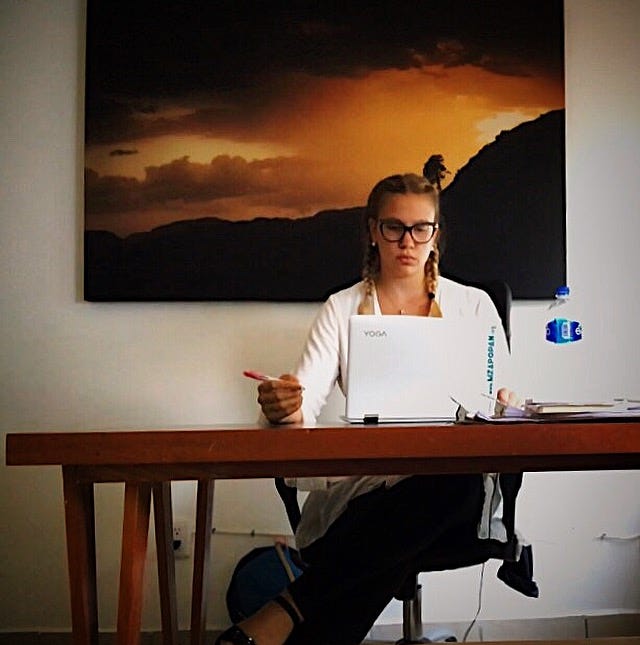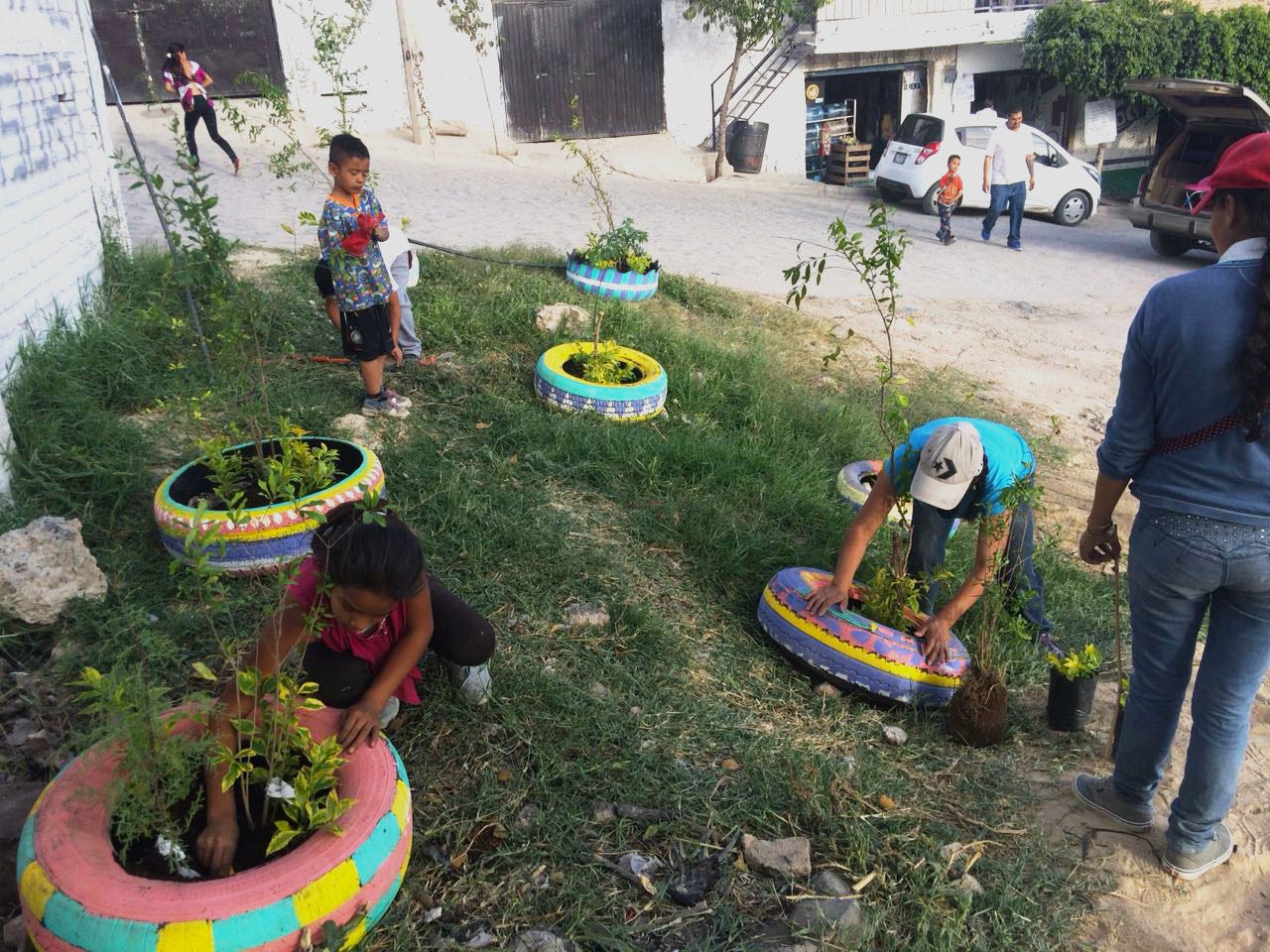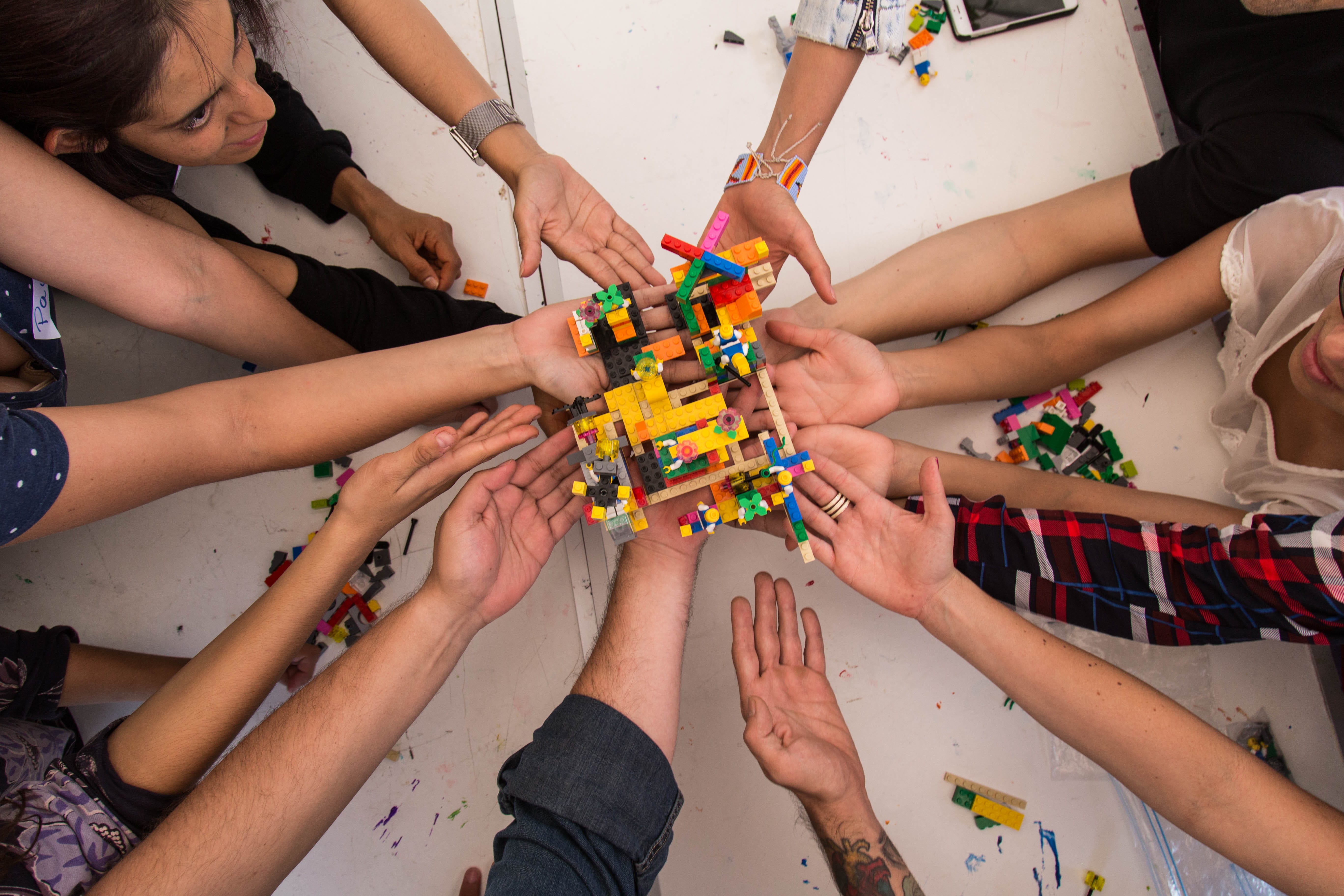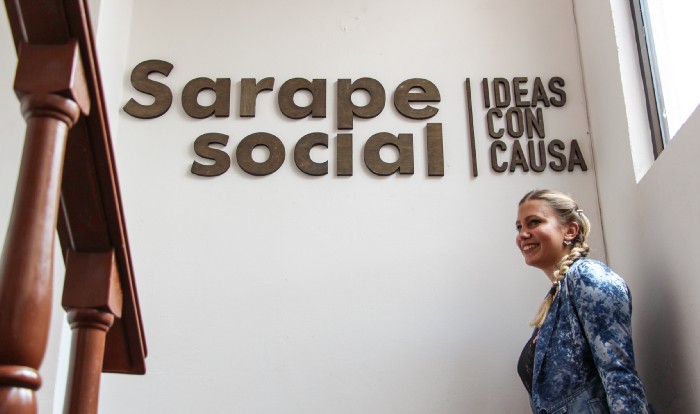Written by Jovana Milošević
International Development, often synonymous with the United Nations 17 Sustainable Development Goals (SDGs) and agenda, is commonly associated with Public and NGO sectors. However, this common perception tends to undermine the increasingly important role that Private Sector plays, and needs to play, in the future if the 2030 agenda is to be globally achieved. In terms of the Private Sector, big multinational companies and conglomerates come forth as seemingly natural partners for multilateral international institutions of global governance such as the UN, World Bank or World Trade Organisation. However, this raises the question of where, if at all, do Small to Medium size Enterprises (SMEs) fit in this complex puzzle of International Development and Global Governance and do they actually have a significant role to play as partners for SDGs?
My personal interest in business and private sector enterprises has organically developed through both my academic and work experiences. In the summer of 2016 I worked with local NGOs in Jaipur, India on furthering the 2030 UN agenda and promoting active civil society participation for the achievement of SDGs such as Quality Education, Gender Equality, Poverty Reduction, Mental Health and Well-being. This line of highly important and esteemed work touched me on a deeply personal level. The work done to change the lives of children, women and other vulnerable groups on a daily basis motivates me to become an active agent of the positive economic and socio-political change I wish to see in the world. However, I also had my doubts about commonly employed methodologies and approaches in the field of development. Labels such as ‘international aid providers’ and ‘beneficiaries’ construct binaries between ‘us’ — the all-knowing developed world and ‘them’ — the helpless, underdeveloped world. This framework is highly toxic and inefficient. We all share a common humanity, yet have different but equally valuable experiences and knowledge. Therefore, from my experience, I would argue that socially constructing beneficiaries of developmental projects and aid as powerless individuals in need of external help, with minimal agency over their own fate due to inferior knowledge and skillset is not just morally and ethically wrong, but also counter-productive and inefficient. The globalising world and the rise of new media forms has already increased global interconnectedness, thus facilitating access to information and knowledge. Therefore, what remains missing are the resources and methods thediverse populous needs to put their knowledge, skills and expertise to practice locally, in order to organically develop from within. This considered, global governance initiatives and multinational companies, while still very important, remain relatively limited in their ability to operate on a micro scale. This makes it difficult for them to fully account for all the complex social realities of diverse local communities worldwide, and this can explain why in many cases such initiatives have not achieved their desired results. Large parts of India, Congo, Sierra Leone, Somalia, Peru, Philippines and Guatemala being just afew of such examples.
Faced with this reality, I have evolved a profound interest and belief in the SMEs as a missing link between themacro and micro scale on the International Developmental scene.

My stance was further confirmed and strengthened by my internship in Sarape Social– a local private enterprise and disruptive agency that uses the power of media, creativity, innovation and local knowledge to solve socio-economic and environmental problems. As a successful and profitable company, Sarape Social provides media campaigns, event management services, and consultancy services. As well as development, management and implementation of social projects for clients from Private, Education, Government and NGO sectors, achieving social impact and furthering worthy causes. In this way, Sarape Social has opened my horizons as it embodies a new type of private sector enterprise that not only contributes to the development of the Mexican economy in the traditional sense by providing local employment, paying tax and donating to charities, but by livening the values of sustainable development for global goals in both internal corporate culture and in provision of services for clients. Namely. Sarape Social specialises in delivering a concrete and measurable social impact and transformation in local communities through custom-made services that focus on co-creation, inclusiveness and bridging the gap between its socially responsible clients and people experiencing the problem. In light of this, I have come to see Sarape Social’s business model as a highly promising and important indicator for the future of International Development. Because of its unique, and even revolutionary, capability to combine the private-sector efficiency and resources with in-depth research, knowledge and active inclusion of service beneficiaries, this company of a medium size achieves immediate and long-lasting social change, thereby addressing the inefficiency and detachment problem that macro scale executors face in their initiatives.

To exemplify, during the “Pintemos Zapopan” Project the local government employed Sarape Social to deliver projects targeting exclusion, poverty and domestic violence problems in the municipality of Zapopan. Hereby, Sarape Social’s methodology and business model becomes remarkably valuable and ground-breakingbecause it does not just develop an in-house project and deliver it as a consultancy service to the customer, but the company actually commits to systematic analytics, diagnostics, tailored workshops and interactions with beneficiaries of their service, making them active participants in the development of service provided. In this way, the company assures its maximisation of their effectiveness of its services because they are developed through co-creation and unique insights from those who live the problem and issues such as domestic violence, hunger and social exclusion every day. As a result, manufactured, prescription-like solutions are not just implemented on a disengaged and distant ‘targeted population’, but instead the population affected is actively given a voice and becomes the active partner in creating a solution. Thereby empowering and enabling the sustainability of social change. They became an active proponent of social evolution in their community. Finally, statistical data and follow ups have proven the permanent and self-sustained nature of this methodology and approach to practical implementation of UN SDGs.
Consequently, this raises many questions about both existing and future prospects of international development coordination and global governance. Throughout my work experience in Sarape Social, working on International Strategy for the firm as it aims to grow and develop, we as a team have been faced with many closed doors and limited opportunities when it came to partnership for SDGs. Namely, most of the UN development agencies, partnerships, initiatives and open calls for proposal focus on either non-profit organisations or large firms with at least wide national outreach, both of which systematically disqualify firms such as Sarape Social. In the context elaborated, this illustrates a significant missed opportunity to establish self-sustained and long-lasting development initiatives on a micro scale that would have the potential to address problems of inefficiency, disengagement and exclusion that have been evident in International Development for decades. Large scale initiatives designed and implemented in isolation from the people they are supposed to help only put the resources provided to a limited use. Due to the fact the amount of people reached does not represent the actual, realistic impact achieved. This is particularly the case in sensitive issues such as gender equality, poverty, and mental health and well-being as the underlying causes tend to be grounded in local culture, tradition and common understandings.
While there is a rising international interest for innovation and the role of the SMEs in Sustainable International Development, particularly in light of climate change challenges, the question remains; are we seeing enough doors being open and efforts made to optimise global synergies across all sectors and hierarchical levels? Based on my experience working on multiple UN open calls for private sector enterprises, I am inclined to deduce that a shift towards higher corporate responsibility and inclusive development is in its early stage. Thus indicating positive future prospects for firms such as Sarape Social. Nevertheless, I believe that a major realisation of the outdated nature of traditional social change and development models and practices is yet to be fully realised and appropriately modified by the UN, other institutions and public sector actors worldwide. It is beyond doubt that we now live in a complex reality of a highly globalised, interdependent and interconnected world that yet remains unacceptably unequal and elitist. Therefore, I remain adamant that opening the doors for more SME — UN/World Bank cooperation is one of the key components for bridging such social divides within a global capitalistic context. Leaving Sarape Social after these past 7 weeks, I am filled with hope for a brighter, more inclusive and fairer future of development; powered by the same private sector efficiency and expertise that leads to successful surplus creations for companies themselves.

Finally, on a more personal note — I have had the experience of a lifetime working for such an open-minded, forward looking and innovative company such as Sarape Social. From an employee point of view, I have come to see Sarape Social as my home and all team members as a family who work through all the problems and challenges of daily business operations together, while still maintaining a positive social impact that motivates beyond what is describable. Through my experiences, from internal corporate culture and practices such as the healthy workplace program, co-creation, communication, stress management and team working workshops, my work on International Corporate Strategy, all the way to my field experiences with project execution and management in Tequila, I can now say with the absolute certainty that Sarape Social is a company in whose bright future and potential I believe in. Both in terms of its importance for the Sustainable International Development

